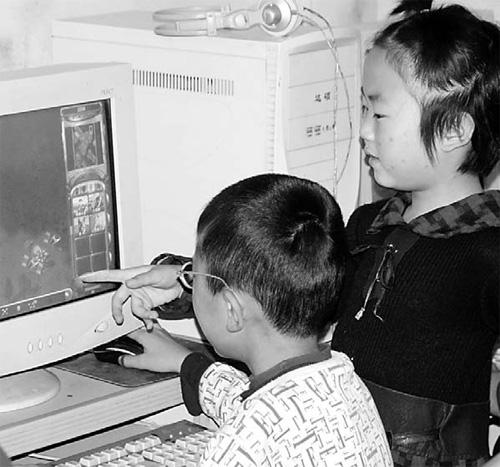Hot on the Web
Parents get power to turn off web games
By Yan Jie (China Daily)
Updated: 2010-02-08 07:04
 |
Large Medium Small |
|
|
Parents get power to suspend children's access to Web games
Parents in China can pull the plug on their kids' online gaming by asking game operators to end services for minors, according to a program launched over the weekend by the culture ministry and six major online gaming companies.
Parents and guardians can submit their kids' account numbers, as well as documents proving kinship between them, if they want the online gaming companies to restrict or terminate services.
With the online gaming market growing rapidly in China, the problem has drawn the attention of society, added the statement.
But the program falls short of defining what is meant by obsession with online games.
Teenagers currently account for 17 percent of online game players, totaling 11.8 million, according to the 2009 White Paper on China's online gaming market published last month by the culture ministry.
In 2009, revenues from online games in China increased 39 percent from the previous year to 25.8 billion yuan ($3.8 billion), according to the report.
Six online gaming companies, including Shenzhen-based Tencent, Inc, Shanghai-based Shanda Interactive Entertainment Ltd and Guangzhou-based NetEase.com, Inc, joined the program. The three companies have a combined 52 percent share of the total online gaming market in China.
Companies in the industry should do their best to prevent teenagers from becoming addicted to online games, an unnamed chief of the ministry's department of cultural market said on Friday. The department regulates the online gaming industry.
Compared to adults, teenage players are less addicted to online games, found the 2009 White Paper. On average, 19 percent of them played for more than 20 hours per week.
Since last Friday, NetEase.com has begun to accept reports from parents who are worried that their kids are addicted to online games or that the entertainment will impair their studies.
The company's staff will contact parents within 72 hours after receiving their reports, according to a post published on the company's website.
Once the parent's complaints are confirmed, the kids could have their gaming accounts suspended until they are adults.













